Poate un mit să-ţi tulbure somnul, să te facă să urli de groază, ţintuind cu ochii orbiţi de sudoare întunericul noptii? Poate un mit să te scuture cu fiori reci atunci când ţi-aminteşti copilăria şi tinereţea? Poate un mit să te facă să-ţi fie ruşine când te priveşti în oglindă? Bineînţeles că nu, vei răspunde, încercând să rememorezi grăbit ce mai ştii din mitologie. Răspuns corect. Un mit este atât de vechi încât nu mai provoacă coşmaruri, ruşini existenţiale şi amintiri dureroase. Un mit este trecutul Trecutului, un mit este copilăria Timpului, deci un mit nu te poate ajunge.

Comunismul şi Nazismul, două ideologii totalitare care au înlănţuit şi însângerat popoare în secolul trecut – Comunismul o mai face şi acum. Îmi mărturisesc limitele pentru că nu stiam că cei doi fraţi au deja câte o mitologie, care alăturate formează mitologiile totalitare sau Mitologia Totalitarismului. Deci, Lenin, Stalin, CEKA, Kolima, Magadan, Dachau, Auschwitz, Hitler, Stasi, Securitatea, Ana Pauker, Gheorghiu-Dej, Canalul, Fenomenul Piteşti, Ceauşescu, sunt deja personaje şi locuri care aparţin mitologiei. Putem vorbi atunci liniştiti despre Mitul Pavlik Morozov sau despre Mitul Katyn, aşa cum vorbim despre Mitul lui Ulise, pentru că Pavlik Morozov şi Katyn sunt poveşti ce îi erau spuse Timpului în copilăria lui. Atunci de ce, ascultându-le, scârba şi repulsia, sau durerea şi mila faţă de victime, şi ura faţă de călăi, ne freamătă-n suflet. Doar ştim că un mit nu ne poate ajunge, un mit nu ne poate durea.
Mitologia Totalitarismului, mitologie şi Comunism, mitologia Comunismului. Sintagme. Dacă Ponta ar purta pe umeri blana leului din Nemeea, în loc să poarte pe cap şapca lui Mao, şi dacă l-ar avea imprimat pe tricou pe Ulise, în loc să-l aibă imprimat şi-n suflet pe Guevara, aş fi de acord cu sintagma “mitologia totalitarismului “. Nazismul a fost înfrânt şi naziştii au fost judecaţi şi condamnaţi. Acum puţinii simpatizanţi îşi povestesc legende, basme, despre “măretii” lor strămoşi, despre martirii şi apostolii lor. Mitologia nazismului. Sună bine, dar oare şi pentru urechile celui care, ridicându-şi maneca, îşi vede “mitul“ tatuat pe mână? Sună bine şi pentru cei care ştiu că parinţii le-au fost gazaţi într-un “mit “? Ce facem cu fratele Nazismului, cu Comunismul? Nu a fost înfrânt, iar conducatorii comunişti şi credincioşii lor nu au fost judecaţi şi condamnaţi. Lenin, Stalin, Che Guevara şi faptele lor nu apartin unui trecut mitologic. Sunt vii ! Comunismul şi comuniştii, sau socialiştii, sau progresiştii, nu reprezintă trecutul îndepărtat. Sunt Prezentul! Şi prezentul ăsta pare a fi veşnic. Un Prezent Mitologic !





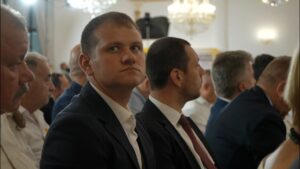




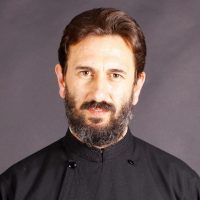
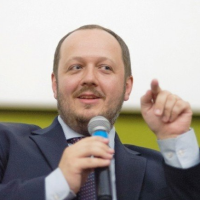
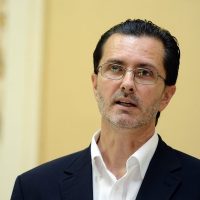


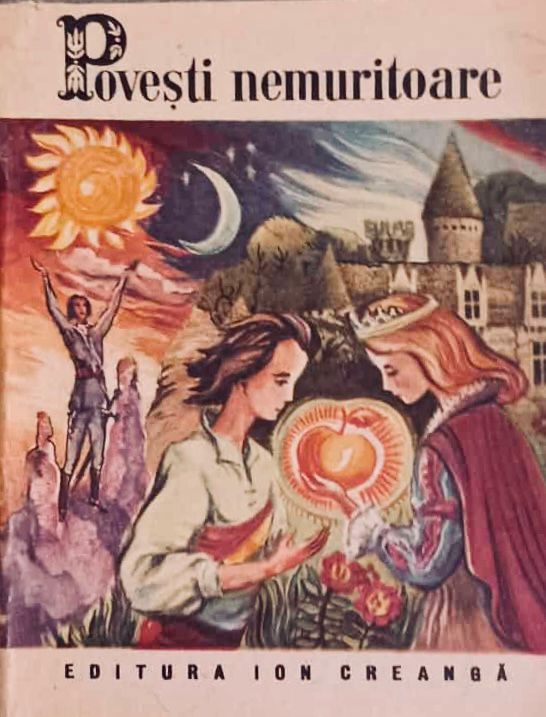
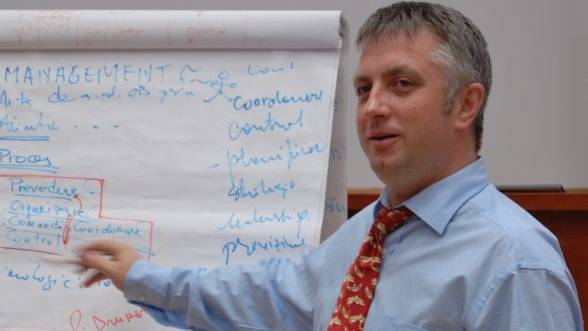
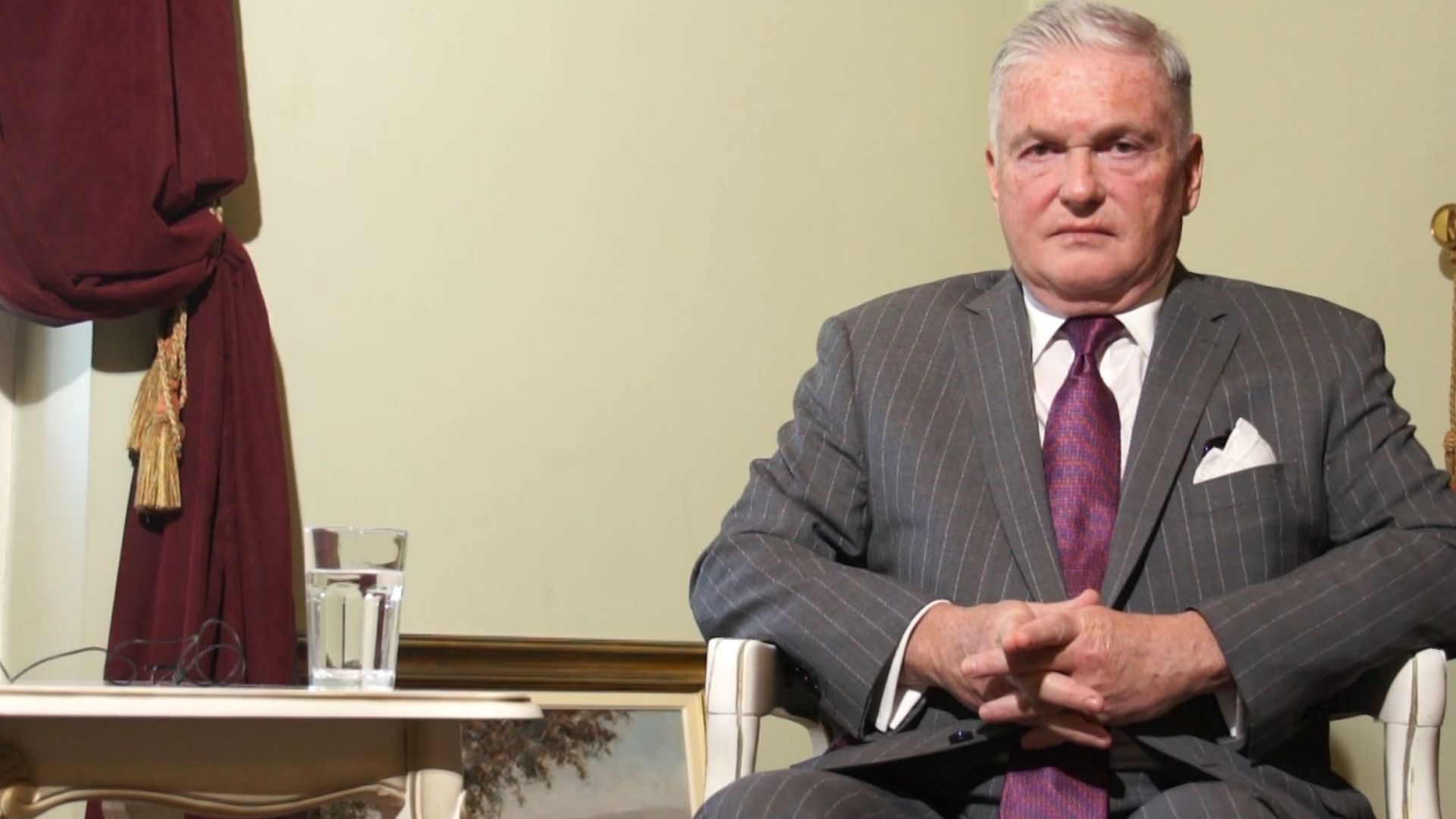
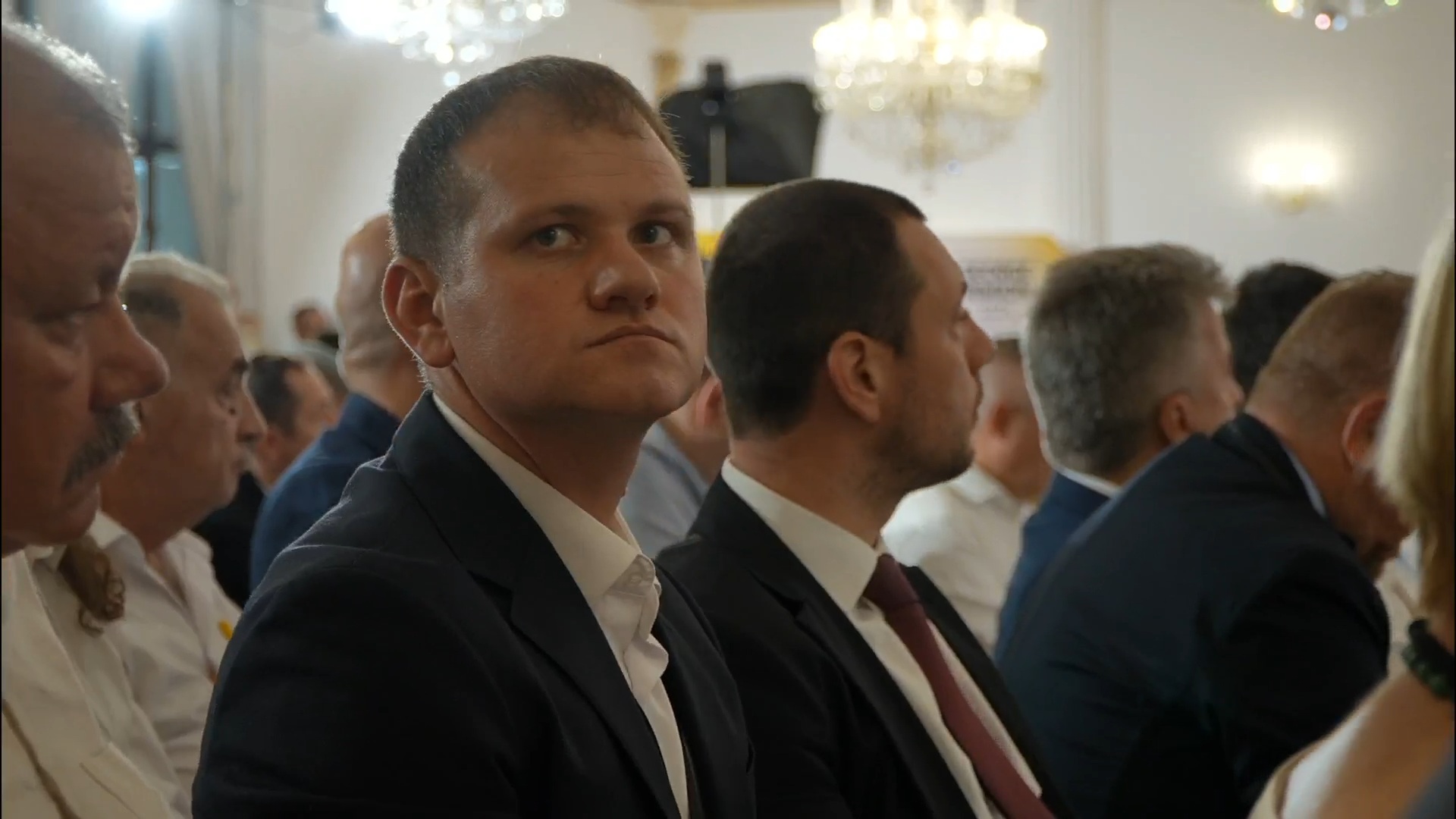




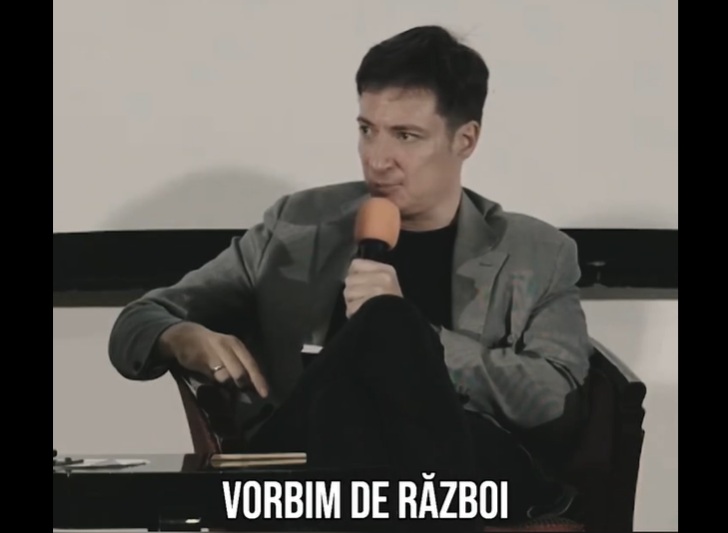

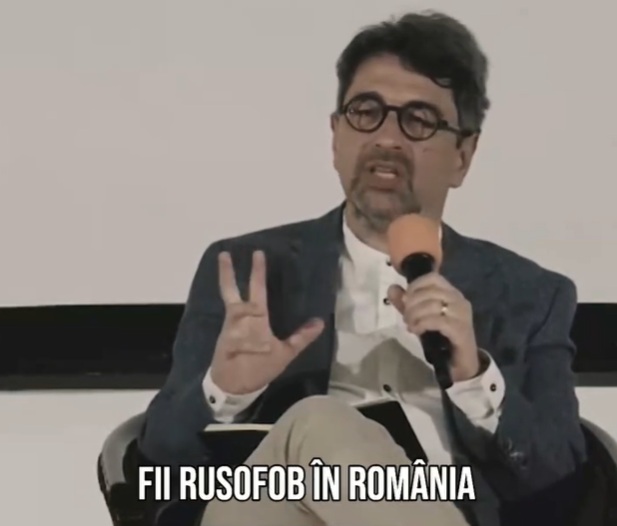
14 Comments
Daniel Francesco
7 April 2011Ponta nu este in stare sa se lupte cu umbra lui dar sa provoace un leu! Omu’ poarta ce-l duce capu’, dar, indiferent ce-ar pune pe el, nu sperie nici clone de curci.
Mint! Mea culpa! Ne-a sosit la redactie o fotografie realizata de Mugur Ciuvica si al sau Grup de Investigatii Ultra-Politice. In imaginea de mai sus, nu este vorba despre Heracles in lupta cu leul, ci este uslasul Ponta, infasurat in steagu’ partidului si al tarii mama (URSS), luptandu-se cu fiara regimului criminal/fascist/vandut americanilor din Romania.
Alex Nicolin
7 April 2011Cam sfrijit leul din tablou. Arata mai degraba a maidanez. Probabil reflecta ambitii mai modeste, de exemplu un post de primar, sau chiar de henger ????
Anca Cernea
7 April 2011Eric Voegelin despre realitate si mitul ideologic (second reality):
Two Modes of Existence: In Truth, In Untruth
In our capacity as political scientists, historians, or philosophers we all have had occasion at one time or another to engage in debate with ideologists . . . . And we have all discovered on such occasions that no agreement, or even an honest disagreement, could be reached, because the exchange of argument was disturbed by a profound difference of attitude with regard to all fundamental questions of human existence – with regard to the nature of man, to his place in the world, to his place in society and history, to his relation to God. Rational argument could not prevail because the partner to the discussion did not accept as binding for himself the matrix of reality in which all specific questions concerning our existence as human beings are ultimately rooted; he has overlaid the reality of existence with another mode of existence that Robert Musil has called the Second Reality. . . . [B]ehind the appearance of a rational debate there lurked the difference of two modes of existence, of existence in truth and existence in untruth. The universe of rational discourse collapses, we may say, when the common ground of existence in reality has disappeared.
. . . The speculations of classic and scholastic metaphysics are edifices of reason erected on the experiential basis of existence in truth; they are useless in a meeting with edifices of reason erected on a different experiential basis. Nevertheless, we cannot withdraw into these edifices and let the world go by, for in that case we would be remiss in our duty of “debate.” The “debate” has, therefore, to assume the forms of (1) a careful analysis of the noetic structure of existence and (2) an analysis of Second Realities with regard to both their constructs and the motivating structure of existence in untruth. “Debate” in this form is hardly a matter of reasoning (though it remains one of the Intellect), but rather of the analysis of existence preceding rational constructions; it is medical in character in that it has to diagnose the syndromes of untrue existence and by their noetic structure to initiate, if possible, a healing process.
“On Debate and Existence” 1967.
http://www.anthonyflood.com/voegelin.htm
Vlad M.
7 April 2011Anca, am trimis un mail. Daca poti sa te uiti cand ai timp, mi/ar fi de folos ceva feedback. ????
John Galt
7 April 2011Capitalismul nu poate muri. Socialismul nu poate exista.
Niciodata!
Seraphim Abel
7 April 2011Iată un articol de exceptie despre Robin Hood-ul Uniunii Europene in lupta cu mercenarii Internationalei socialist-liberale. Poate reusiti sa-l traduceti in limba romana, fiindca am impresia ca putina lume intelege ce se intampla de fapt in Ungaria, media noastra, aservita ori doar comoda, preluand doar articolele realizate la comanda politico-financiara.
(Mentionez ca, in vara trecuta, Viktor Orban a dezvaluit la un post de radio, ca in 1989-1990, marile trusturi bancare internationale, in spatele usilor inchise, au impus (oare numai…?) Ungariei sa-si privatizeze intregul sector bancar, ei promitand ca vor asigura finantarea dezvoltarii economice accelerate. Restul e istorie: statul a ramas aproape fara nimic, nivelul datoriilor crescand la 80% din GDP, fiecare nou-nascut mostenind o datorie de aproape 8000 de euro. Una din primele masuri ale premierului ungar a fost supraimpozitarea bancilor care primisera anterior sprijin din partea statului, si transformarea fondurilor de pensii private – din obligatorii in facultative, 90% din cotizanti revenind benevol, inclusiv cu fondurile, in sistemul public. Desigur, asemenea atacuri la pusculita finantei internationale nu puteau ramane nepedepsite. Vezi cum, in continuare!)
A Hungarian Democrat Takes on the Old Guard
Hungary has always felt a little forgotten in the European mind, but its recent prominence in the world’s media is something it could have done without. Probably no one would even be aware of Hungary holding the EU presidency, but for the hysteria that has erupted around its media law which also came into force in January, as Hungary assumed the presidency.
I’m not going to defend the media law but I am going to reflect on the hypocrisy, double standards and ignorance of those who have so shrilly attacked it and Hungary’s Prime Minister Viktor Orbán. Outside Hungary, attacks on the media law in the EU have come principally from the Left, but they have gained bandwagon momentum in political circles and the press, and even the illegal download website The Pirate Bay, based in Sweden, shut down its services for 24 hours to protest against the law.
For one democracy to interfere in the internal affairs of another requires a great deal of justification. The media law may indeed be badly thought-out or poorly drafted, but poorly drafted and badly thought-out legislation passes through democratic legislative bodies every day.
I haven’t read the full text of the law (it’s far too long), but then neither have its critics. Most of the condemnations came long before the law was translated into English, so critics like Luxembourg’s Foreign Minister Jean Asselborn and the New York Times who incorrectly claimed that Angela Merkel had „spoken out strongly” against the law are lining up with the Ayatollah Khomeini in attacking something they haven’t read (unless they’ve been taking evening classes in Hungarian).
If someone in Hungary who didn’t speak English, who’d never been to Britain, who had made no study of its culture or history were to start fulminating about the state control of the media in the UK (the sinister Ofcom scouring television channels for „offensive” material at the state’s behest), we’d laugh or feel sorrow at such patent lunacy. Yet that’s precisely the sort of absurd and uninformed criticism that Orbán and his party Fidesz have faced.
Every country has regulation of the media and there is nothing, absolutely nothing, contained in Hungary’s media law that isn’t found in other EU countries or the US. Lord Annan’s sparkling line that the authorities should „censure but not censor” is the ideal a democracy should work towards, but how do you achieve that? Even in Britain with a long tradition of unfettered news and opinion, we still have arguments about exactly where lines should be drawn (and who should be drawing them).
I’ll take as my text the Guardian’s coverage of this matter, not because I think it especially objectionable, but because it demonstrates the misjudgments that have abounded around the media law and Viktor Orbán in particular.
The Guardian calls Viktor Orbán „power-hungry”. There are very few politicians anywhere who aren’t. That’s the whole aim of politics. Are Cameron, Clegg, Miliband, Obama and Merkel not „power-hungry”? Are footballers reproached for having an unnatural interest in scoring goals?
Then a Guardian editorial (one hopes a little tongue in cheek) had as its title „Hungary: one-party rule”. Orbán and Fidesz won the elections last April with 67.88 per cent of the parliamentary seats. Think about that. That’s a result that’s almost impossible to achieve in a democracy: more than two-thirds of the parliament.
More than half the voters (52.93 per cent) chose Orbán (and there were plenty of other parties to go for — including my favourite, the Two-Tailed Dog Party). That’s almost embarrassing in a free election. That’s a result that Cameron and Merkel, who barely scraped into power, would cut a limb off for. Think of the „mandate” that confers on you. Is it in the Guardian’s view a crime to be popular and successful? Orbán sportingly offered his crushed opponents more seats on parliamentary committees than they were entitled to, but of course his generosity and democratic gesture have gone unrecognised.
Orbán is also styled „a right-wing populist” by the Guardian. Orbán isn’t even really right-wing. Like many other anti-communists, merely because of his opposition to a totalitarian system he has been smeared as being far-right or anti-Semitic. Orbán’s outlook is more Labour than Conservative (consider his rejection of IMF austerity), but because politicians and journalists in the West can only think in narrow terms of Left and Right, he is placed in that box.
The Guardian reported that the „leading daily newspaper” Népszabadság had as the headline on its front page, „The freedom of the press in Hungary comes to an end”. That’s accurate reporting, but the Guardian overlooked significant facts. Népszabadság is the leading daily because it was the newspaper of the Communist Party (MSZMP)and it remains the mouthpiece for the Socialist Party (the home of the ex-communists, the oligarchy that still owns and controls most of Hungary from the comfort of the Buda Hills). Népszabadság was the paper that cheered the execution of Hungarians who wanted democracy and free speech, so for it to act as a champion of free speech is like someone from the SS running a workshop on human rights.
Orbán’s concern about the Hungarian minorities in the neighbouring countries (where they have been very badly treated) is also interpreted by the Guardian as another manifestation of evil. Curiously, if you’re an Arab or a Muslim anywhere in the world you’re apparently entirely justified to be aggrieved about the plight of the Palestinians. The Irish are entitled to issue passports to those born in Northern Ireland, but Orbán’s notion of giving citizenship to Hungarians three feet on the other side of the border is destabilising Europe.
There is a curious double standard in both politics and the media. If you’ve been involved at any time with the far-Right, you’re a pariah, an odious sicko, no matter how much you recant, but it’s OK to play far-Left (one only has to look at the number of British ministers who started off as communists, or the spectacle of Tony Blair campaigning for the ex-Communists in Hungary). One other thing hasn’t been considered in the hoo-haa around the media law: the idea that the media in Hungary might need reform.
Hungary had free elections in April 1990 and the communists were out of government. They weren’t out of the media. The same people who had been singing about how happy Lenin’s birthday made them were still in the television, the radio and the press.
Orbán is the democrat. He risked his neck for democracy — that’s more than most of us have done.
In 1998, at the age of 35, he became Hungary’s youngest elected prime minister and the youngest prime minister in Europe. Orbán lost the next two elections in 2002 and 2006, but only just. One of the factors that cost him victory were constant accusations, disseminated by the ex-communists, of anti-Semitism and the suggestion that he wanted to do a deal with the far-Right to gain power (the same accusations of cosying up to the skinheads were made this last election and picked up by the British press, no matter how many times Orbán made it clear that he never would).
Despite Fidesz establishing a Holocaust memorial day in 2000, these slurs stick. I know many intelligent, educated, worldly Hungarians (some Jewish, some not) who fell for it. Ten years ago I had a Hungarian visitor who saw a book about Fidesz on my desk and commented that she had liked them but that they were now „too right-wing and anti-Semitic”. I hadn’t been to Hungary for a while and was out of touch. So I asked her if she could give me an example of any anti-Semitic actions by Orbán? No. Could she give me an example of any anti-Semitic remarks by Orbán? No. So why, I asked, did she think he was anti-Semitic? „Come on, don’t be so naive. You don’t have to do anything or say anything anti-Semitic to be anti-Semitic.”
A letter from the distinguished pianist András Schiff published recently in the Washington Post, questioning Hungary’s fitness for the EU Presidency, followed this pattern. Schiff (who no longer lives in Hungary) parks Orbán’s name next to a list of „racism, discrimination against the Roma, anti-Semitism, xenophobia, chauvinism and reactionary nationalism”. As always, no evidence is cited against Orbán (because there isn’t any), but somehow, mysteriously, all these ills (found in every country) are his fault. It was gentlemanly of Schiff to stop before he got to bestiality and witchcraft.
I should add that for good measure Fidesz was also attacked from the other direction, for being Jewish („Fidesz=Zsidesz” was painted on walls during elections, „Fidesz=Jewdesz”) and there was a texting campaign which claimed Orbán was Roma and beat his wife. It’s a wonder that anyone goes into Hungarian politics.
In a famous zoological appraisal of Hungarian politics, the economist (and former communist) László Lengyel wrote: „The tiger can’t help being born the way it is, living off meat and not green leaves. Viktor Orbán has a tiger’s nature. A soft tread. He circles his victim. He plays with it. Mercilessly kills it. There are those who don’t like mercilessness. That’s a matter of taste.
„But the tiger doesn’t pretend to be a jackal or a fox. He has no need to. It’s not true that we didn’t know about his tiger’s nature. Let’s confess that we often found it pleasing. In this world of hissing reptiles and screeching monkeys it was good to see …Viktor Orbán has no limits in Hungary. Indeed no opposition of any kind stops a politician like him.”
In the 1980s, a stocky young man in the Hungarian countryside conferred with his father. He was in two minds about going to university or becoming a professional footballer. „Go to university,” his father said, „it’s about time someone in this family did.” So Orbán went off to university to study law.
In British culture, countryfolk are largely fodder for ridicule. Not so in Hungary. The peasants were always esteemed for their sharp wits. One of the great figures of Hungarian folklore is Matyi the Gooseherd, a trickster who metes out revenge on the rich and powerful. Orbán’s village, Alcsútdoboz, is only a short distance from Budapest, but Orbán’s rustic credentials are impeccable. The young Orbán had to go out into the fields at harvest-time to help out. He was given a spade to deal with the rats and he maintains he learned an important political lesson: „You have to hit the rats very hard the first time, otherwise they run up the spade and bite you.”
The country boy’s time at university was uneventful at first; he was so bored that he considered quitting, but his father advised him: „In this family when we start something, we finish it.” It is a precept that Orbán’s opponents will ruefully concede he has taken to heart.
At the end of his university studies Orbán and some of his fellow students started hanging out with the small „democratic opposition”, the intellectuals who had a small samizdat business, so small that the communists happily tolerated them.
By 1988 however, because of generational change in the Communist Party in Hungary and Gorbachev in Moscow, things eased even more. The communists had a clever scheme to create a tame, lame opposition and allowed an organisation called the MDF (the Hungarian Democratic Forum) to come into being to create an illusion of democracy.
In March 1988, 37 students and recent graduates met in Budapest to create the Alliance of Young Democrats (Fidesz). It was the first independent youth movement since 1956. The wooden prose of their founding declaration demonstrated the prevalence of lawyers and economists. One of the founders was Viktor Orbán.
In most parts of the world, 37 twentysomethings in a room gassing away about social reform would be lucky to get a paragraph in the local paper. However, over at the White House, the Communist Party’s headquarters, the alarm bells were ringing loudly. The communists hadn’t forgotten that student jabbering had ignited the revolution of 1956.
Five of the founders of Fidesz, including Orbán, were invited in for a „chat” with the police. There has been much speculation as to why these five were picked out of the 37. Some say the police were simply too lazy to track down more of them. Or it could be that the bosses at III/III (the communists’ internal security department) knew talent when they saw it; they not only spotted a future prime minister but, in addition, a future head of the intelligence services.
The intimidation was fumbled. An uneasy, fat police sergeant (police sergeants were always fat in those days) explained to Orbán that they had broken the law by setting up Fidesz.
„I see,” said Orbán, „and which law exactly have we broken?”
„How should I know?” the sergeant replied. „You’re the bloody lawyer. You tell me.”
The Party’s bluff had been called. Nevertheless, the fact remains that it took immense courage to set up Fidesz, because it was far from clear how things would turn out that year. As it was, Fidesz was the hammer that aggressively broke up communist power — Orbán and Fidesz pushed back the limits — followed by others. The others imcluded the old-timers of the dissident movement who now came out of the woodwork and set up their own party, the SZDSZ (Free Democrats).
This turned out to be a key moment in Hungarian political life. The philosophers, journalists and poets who made up the SZDSZ saw Fidesz as their youth wing. Orbán didn’t. Some of Fidesz’s leaders, however, did defect to go over to make the tea at the SZDSZ. The SZDSZ went on (bizarrely) to form a coalition government with their former foes, the communists (now trading under the Socialist banner).
It’s hard to explain why the former dissidents made that decision (largely greed, I suppose), and the three terms of Socialist-SZDSZ rule were marked by dizzying sleaze and corruption (and the introduction of a new term to the Hungarian language: to „Nokia” someone, which means to provide them with a box for a Nokia handset stuffed with money).
The SZDSZ paid the price in the 2010 elections. They failed to get a single seat in parliament, and they will never get another seat in parliament (imagine going from government to oblivion, imagine what voters must think of you) and I’d bet good money that some of them will soon be behind bars.
This alignment of the SZDSZ and the ex-communists was particularly bad news for Orbán. The communists had 40 years of power, 40 years of travelling and working abroad, 40 years of making sure their children had the best education, spoke foreign languages, got the best jobs in foreign trade, in banking, in the diplomatic corps, in the universities. Thus they have many friends and acquaintances abroad who can (often unwittingly) seed their propaganda.
On top of that, the supporters of the SZDSZ tended to be the Budapest intelligentsia with good international contacts — journalists, academics, musicians, writers. They’re not good losers. This other powerful segment of society which should have championed a democrat like Orbán (or at least respected him) spent its time instead spreading poison about Orbán abroad. The ex-communists and the SZDSZ have done a particularly good job in Germany and that’s why so many were so quick to believe that Orbán was up to something shady (although if your chief detractor is the paedophile Daniel Cohn-Bendit you don’t have too much to worry about).
The writer György Konrád, an intelligent, cultured man has been at the forefront of this. But let’s remember that Sir Arthur Conan Doyle, also an intelligent, cultured man and a gifted writer, believed in fairies at the bottom of the garden. Konrád sees fascists where there aren’t any. In Fidesz.
In an interview with the French paper La Croix, Konrád, one of the founders of the SZDSZ, claims that Orban „always despised older people who had ideas.” Konrád really gives it away here. Orban wasn’t willing to kowtow to the SZDSZ in 1990 and to sit reverentially at the feet of Konrád and the other grandees of the SZDSZ and they can’t get over it.
They can’t get over the fact that they’re not the philosopher-kings of Budapest, but virtually unknown has-beens. They can’t get over Orbán being the only politician in Hungary to have genuine popularity (polls consistently show this), that Orbán has the ability to mix with all classes of society (unlike Konrád and his sociology-spouting Kant-translating colleagues).
Konrád’s crew has gone kaput and there is nothing left for them but jealously, rage and spite. And if Konrád wants to play the intellectual card, it should be remembered that Orbán won a scholarship to Oxford (where his area of research was Solidarnosc, the opposition movement that actually achieved something).
Orbán has had an undeservedly bad press in Hungary (imagine getting two-thirds of the seats in an election with the media against you, imagine getting lectured on democracy by crooks and beneficiaries of a dictatorship). He’s also had a bad press in the West because journalists tend to write what other journalists write or tell them. It’s not that surprising that Orbán feels the press needs some examination.
Lengyel’s estimation that no one can stand up to Orbán is correct. He has pretty much wiped out opposition in Hungary (inadvertently, the Guardian is right), but it should be understood he has done this in a fair, open, democratic way, against the odds (while also being a family man — he has five children). He’s a self-made success who rose from humble beginnings and has played the game much, much better than the others.
I can’t think of a politician in the democratic countries with his talent. This doesn’t mean he’s infallible, and a large parliamentary majority certainly encourages sloppiness and hubris. Many of his supporters have been shaking their heads in disbelief, not at what he’s doing but how he’s doing it. As with many strong leaders, his choice of lieutenants is questionable (Viktor Orbán likes the sound of yes and he’s not famed for his love of discussion). The clowns in his entourage have certainly ushered him into this public relations fiasco. Nevertheless, I suspect that the Hungarian Tiger will shake off this soaking.
Tibor Fischer
Tibor Fischer is a British novelist and short story writer. He is the author of Under the Frog, which was shortlisted for the Booker prize, and Good to be God.
costin A.
7 April 2011Seraphim, interesant articolul despre Orban. Situatia pare chiar ma bolnavicioasa ca in Romania lui Basescu, in care fostii comunisti il fac troaca de porci. Nu doar national, ci si international, in cazul lui Orban. Am auzit si eu astfel de zvonuri despre Ungaria si Orban, dar inafara de ce am citit mai sus, si totusi, nu se dau prea multe detalii despre care sint mai exact acuzatiile. Stie cineva mai multe despre ce se intimpla in Ungaria?
Vlad M.
7 April 2011Calehari, ti-am zis, nazismul si comunismul au mitologii. Biblii si apostoli, sfinti si martiri, Rai si Iad, s.a.m.d. Citeste-l pe Besancon.
Vlad M.
7 April 2011Din ce am scris acum cativa ani:
Nazism
Comunism
calehari
7 April 2011Vlad M. @8 @9 . Te-am inteles si continui sa-ti inteleg punctul de vedere. Daca as putea sa ma detasez , dar nu pot , poate si pentru ca nu vreau ( sunt destui care au facut-o , nu mai este nevoie si de mine ) as gandi la fel ca tine. Karl Marx este mantuitorul , Lenin , Stalin, Mao sunt apostolii, Hitler este Mantuitorul nazist….. Ai dreptate, cand e sa faci comparatii si echivalari. Pentru mine insa , astia, sunt niste filozofi psihopati , niste criminali odiosi , niste macelari ideologici , niste brute paranoice , ale caror oase le-as dezgropa si le-as arunca la caini , iar pe adeptii lor , pe slugile lor , pe credinciosii lor , intr-un acces de marinimie , i-as adaposti acolo unde le este locul , in spate gratilor!
” Noi insa vom fi marinimosi , n-o sa-i impuscam , nu le vom turna pe gat apa sarata , nu-i vom da hrana plosnitelor , nu le vom pune zabala ” Randunicii „, nu-i vom tine cate o saptamana in picioare nedormiti , n-o sa-i busim cu cizmele si nici nu le vom strange capul in cercul de fier , nu-i vom lovi cu bastoanele de cauciuc si nu-i vom inghesui in celula ca pe niste bagaje sa stea unul peste altul -nimic din tot ce au facut ei ! Dar inaintea tarii noastre si inaintea copiilor nostri suntem obligati SA-I CAUTAM SI SA-I JUDECAM PE TOTI ! …. Sa facem ca fiecare dintre ei sa spuna cu glas tare :
– Da, AM FOST UN CALAU SI UN UCIGAS ”
Eu nu l-am citit pe Besancon , l-am citit pe Soljenitin , si am sa cred ca Prezentul este mitologic , atunci cand javrele care traiesc printre noi vor recunoaste ca au fost niste calai si niste ucigasi . Probabil ca voi fi poreclit , intr-un tarziu Nemuritorul ????
John Galt
7 April 2011Ar zice niste capitalisti rai.
????
calehari
7 April 2011John Galt @11. ” Rolul filozofiei de DREAPTA ( imi cer scuze pentru sintagma ???? ) este de a se asigura ca unii sa se poata contrazice cu altii fara obligatia de a-i extermina pe cei care se opun „- Frumos spus ! –
” Rolul filozofiei de Stanga ( scuze ???? ) este de a se asigura , ca toti cei care i se opun vor fi exterminati ! ” – Obligatie ce le revine ” filozofilor ” activisti ????
Am retinut si paragraful asta : ” MITUL ” Varstei de aur ” se reincarneaza in exclamatile socialismului bolivarian si in febra fobiilor anti-occidentale si anti-capitaliste „. Hm, ce curios ! Un mit care se reincarneaza , un mit care devine aievea ! Pai ori n-a fost mit si atunci avem o problema ( de ce ii spunem realitatii , MIT ? ) , ori a fost si ramane un mit si atunci iar avem o problema :). Imi cer scuze , m-am incurcat de tot ????
John Galt
7 April 2011Lavrenti Beria si epidemiile care apar din cauza capitalismului. Livtinenko s-a imbolnavit din cauza unor carti unde a citit prostii, evident. Ce bine ar fi daca acele carti ar fi fost arse, interzise definitiv, nu? ????
calehari
7 April 2011John Galt @13. “ Profesorul universitar “ Lavrenti Beria si cursul sau de psihopolitica , mi-a adus aminte de inaintasii in ale practicarii psihopoliticii , bineinteles tot rusi , ai “ bunului “ Lavrenti . Pentru ca , uimitor poate pentru unii , rusii au traditie in domeniul folosirii psihiatriei pentru a-i aduce pe cei rataciti pe calea cea dreapta si buna . Dar sa ascultam povestea :
“ In urma cu cativa ani, un om luminat la minte , bine vazut de toata lumea la Moscova , nobil din nastere si din fire , dar , din nefericire pentru el , ros de PATIMA ADEVARULUI , primejdiosa orisiunde , dar UCIGASA IN ACEA TARA se gandi sa scrie ca religia catolica este mai prielnica dezvoltarii spiritelor si propasirii artelor decat religia bizantina ruseasca ; gandea despre aceste lucruri la fel ca si mine, si a cutezat sa o spuna , crima ce nu se poate ierta unui rus ……Intr-un cuvant , dupa parerea lui, catolicismul lipsise destinul poporului slav , caci doar in el gasesc, deopotriva, entuziasmul sustinut , devotamentul mereu reinnoit , mila desavarsita si discernamantul pur.Isi bizuia afirmatia pe nenumarate dovezi si se straduia sa arate avantajele unei religii independente , adica universale , in comparative cu religiile locale , adica limitate de politica ; pe scurt profesa o opinie pe care n-am incetat nicio clipa sa o apar din toate puterile .
Cartea aceasta , scapata prin nu stiu ce minune sau subterfugiu de supravegherea cenzurii, a pus Rusia pe jaratic , Petersburgul si Moscova , orasul cel sfant , scotand strigate de furie si spaima ; in sfarsit, constiinta credinciosilor s-a tulburat intr-atat, incat de la un capat la altul al Imperiului se cerea pedepsirea necugetatului avocat al mamei bisericilor crestine … In fine , toate cnuturile , Siberiile, ocnele, minele , fortaretele si putietatile Rusiei nu le mai ajungeau Moscovei si ortodoxiei bizantine pentru a se intari in fata ambitiei Romei, slujita de doctrina nelegiuita a unui tradator de Dumnezeu si de tara.
Se astepta cu mare ingrijorare hotararea ce va pecetlui soarta unui ticalos atat de mare ; cum sentinta intarzaia sa apara , oamenii isi pierdusera deja nadejdea in dreptatea suprema , cand Imparatul , in impasibilitatea sa milostiva , declara ca nu este vorba de A PEDEPSI , neexistand nici un criminal care sa-si primeasca osanda , CI DOAR UN NEBUN CE SE CUVINE A FI INCHIS; si adauga ca BOLNAVUL VA FI DAT IN GRIJA MEDICILOR .
Noul fel de cazna fu aplicat fara preget , dar intr-un mod atat de aspru incat presupusul nebun se gandi sa dea un temei hotararii derizorii al sefului absolut al Bisericii si Statului. Mucenicul adevarului fu la un pas de a-si pierde ratiunea ce-i fusese tagaduita DE O SENTINTA VENITA DE SUS. Astazi, dupa trei ani de TRATAMENT strict respectat , pe cat de injositor , tot atat de crunt , bietul teolog din lumea buna incepe doar sa se bucure de putina libertate ; dar … s-ar putea crede ca este vorba despre o minune … ACUM SE INDOIESTE DE PROPRIA JUDECATA , si dand crezare cuvantului imperial , RECUNOASTE SINGUR CA E SMINTIT !..”
S-a intamplat acum vreo doua sute de ani si cred ca , Marchizul De Custine nu banuia cand a scris ca , pomeneste despre unul din primele cazuri de folosire a Psihopoliticii .Oricum , sunt dati dracu’ rusii astia !